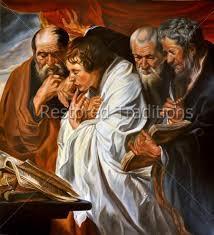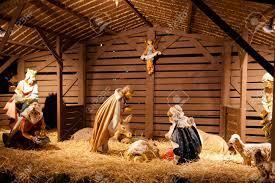This post is about a simple concept, but one that is based on interpretation.
It about the Gospels.
The Good News that people have heard about and the message of this time of year, for some.
But the question is why they are interpreted a certain way in Islam, and how it could be.
To believe in Islam a person must believe in the Gospels. From A Christian standpoint, this sounds like one is acknowledging that Jesus is the Son Of God. Aren't there verses that claim he is the Son Of God?
However, Islam does not think so. It means interpreting the Gospels the way they do.
This post examines the nature of the Gospels.The Gospels were a significant part of the life of Jesus. At Christmastime it is important that what is in them is reliable.
In Islam there is a belief that God did not reveal Scripture to the writers of the Gospels and that lessens their credibility.
They think the Gospels were revealed to Jesus, but not written by him, or in his lifetime. They say they want "what Jesus preached", and not just oral traditions, as the Gospels.
Muslims claim the Gospels are not originals and that the Gospels are attributed to other people. (Matthew, Mark, Luke and John)
The notion that the ideas could have been mistranslated or are from the authors is important to them.
Christianity, by contrast, thinks the Gospels were inspired by God and written by humans, like other Books in the Bible. The Old Testament was not written by God, either, but it is central to Christianity, Judaism and Islam. The idea they were written by humans does not take away from their authenticity.

So how can the Gospels be interpreted so differently, if they are an important part of Christian belief and Islamic belief?
How does a Christian respond to this?
- Matthew and John were Apostles of Jesus. St. John was at the crucifixion of Jesus.
- A significant part of the Gospels include direct quotes from Jesus.
- If the Gospels were written after 70 A.D., why would there not be any mention of the destruction of the Temple in Jerusalem? That would be significant enough to include.
If you want something revealed to Jesus, aren't his words and the words of his Apostles enough?
Islam seems to assert that a person can disregard the Gospels as they are written in the Christian Bible.So, this leads to a question.
Does Jesus have to have written the Gospels for them to be authentic?
It is a common belief that the Old Testament was revealed to Prophets of God. These were people like Abraham, Moses, David, Isaiah, etc. Did these Prophets author all of the Old Testament?
Yes, the Prophets were a part of the Old Testament. But Islam asserts that Moses did not write the first five books. The Prophets section was largely authored by the Prophets.
But what about the New Testament, where the Gospels are included? How did they come to be and are they credible?

First of all, God revealed his message to New Testament Prophets, as there were Prophets in the Old Testament.
Who where they? People like Anna, Elizabeth, John The Baptist, Joseph and Mary. There are parts of these included in the New Testament, which is similar to the first five books of the Bible.
Furthermore, as stated above, much of the Gospels are quotes by Jesus himself. (E.g., the Sermon On The Mount) Have you ever used a Bible with colored parts in the Gospels, indicating what was spoken by Jesus?
And where did these quotes come from? Witnesses. Either the Apostles themselves, such as Matthew or John, or witnesses. St. Mark spent a lot of time around St. Peter. Why is an Apostle not credible? In fact, John the Apostle was at the crucifixion of Jesus.
Regarding oral tradition, there were likely many traditions in the culture that did not make it into the Gospels. It was part of life back then, since written materials were scarcer. There were also large numbers of people who witnessed Jesus and what he did.
So, one could conclude the Gospels are not just any oral message passed on by anyone.
In fact, 2 Peter 1:21 reads,
"For no prophecy was ever produced by the will of man, but men spoke from God as they were carried along by the Holy Spirit." This post asserts the Gospels can be credible, even if they were not written by Jesus.Why else would 11 of his 12 Apostles be martyred, along with numerous others in early Christianity?
And, while the message of the Gospels is about the death and Resurrection of Jesus, he had to be born for that to happen. That makes this time of the year special.
Do you think the Gospels are reliable?


